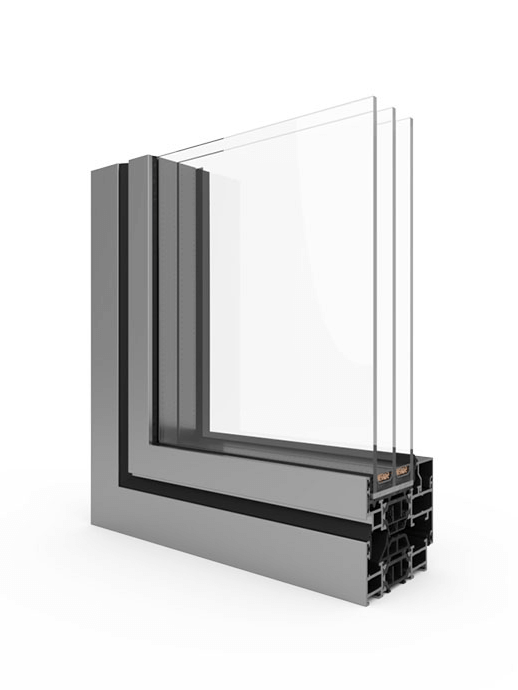
Double vs. Triple Glazing: Which Is Best for European Windows & Doors?
When choosing European windows and doors, glazing plays a crucial role in insulation, energy efficiency, and overall comfort. While both double and triple glazing offer significant benefits, understanding their differences can help you make the best decision for your home.
What Is the Difference Between Double and Triple Glazing?
- Double Glazing consists of two panes of glass with a layer of insulating gas (argon or krypton) in between.
- Triple Glazing has three panes of glass with two insulating gas layers, offering even better insulation and noise reduction.
U-Factors and Energy Savings
The U-factor measures how well a window prevents heat loss. Lower U-factors indicate better insulation.
- Double Glazing: U-factor iaround 0.25 – 0.30 (BTU/hr·ft²·°F)
- Triple Glazing: U-factor as low as 0.13 – 0.16 (BTU/hr·ft²·°F)
With a lower U-factor, triple glazing significantly reduces heat loss, leading to greater energy savings and lower heating costs in colder climates.
Why Prioritize Triple Glazing?
- Superior Energy Efficiency – Retains more heat, cutting energy bills.
- Better Noise Reduction – Ideal for busy or urban areas.
- Enhanced Comfort – Eliminates cold drafts and condensation.
- Increased Security – Extra glass layer provides added protection.
Is Triple Glazing Worth It?
For homeowners in colder regions or those looking for maximum efficiency, triple glazing is the best choice. While the initial cost is about 7-10% higher, triple glazing offers 50-60% better performance than double glazing, greater energy savings, and improved home comfort, making it a smart investment.
Final Thoughts
Both double and triple glazing provide excellent insulation, but triple glazing stands out for its superior energy efficiency, security, and comfort. If you want the best performance for your European windows and doors, triple glazing is the way to go.
Need expert advice? Contact us today to explore your best glazing options!





